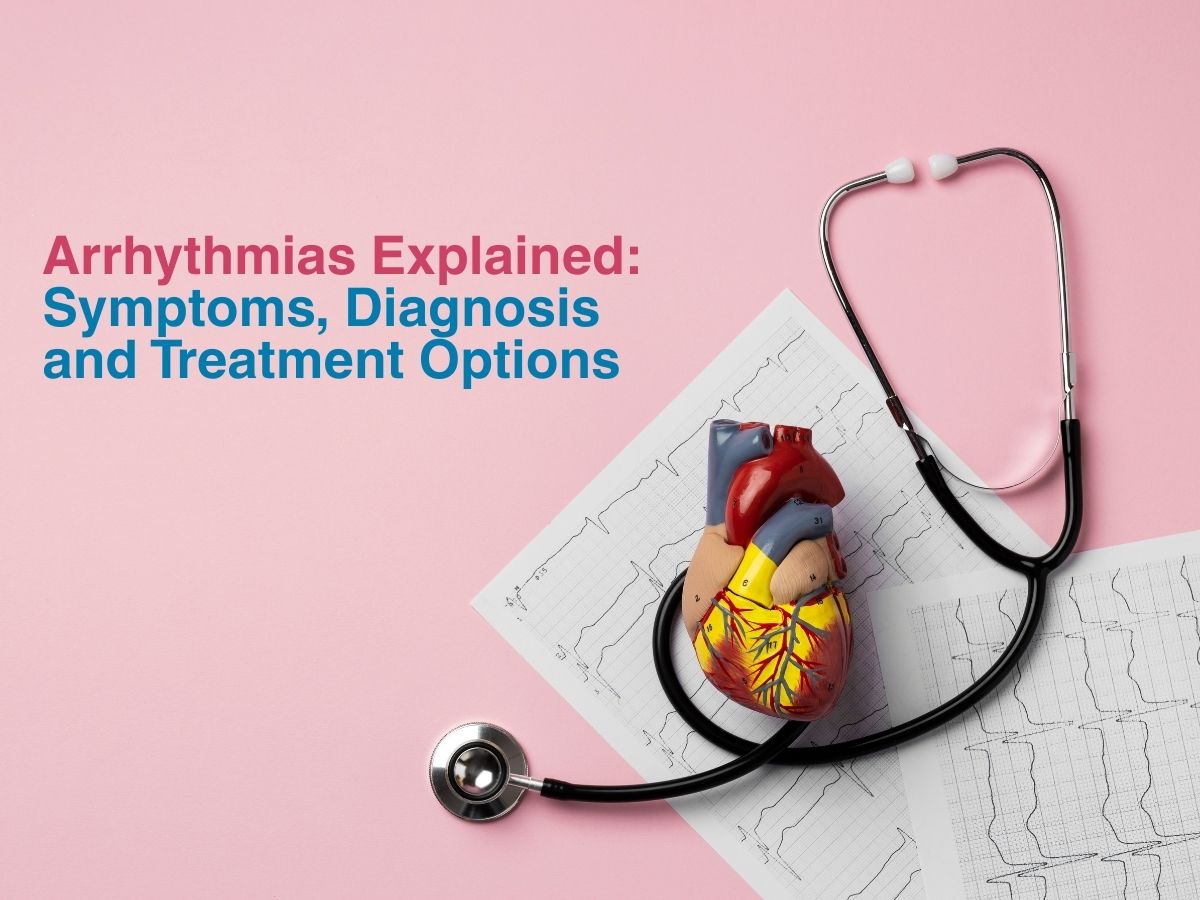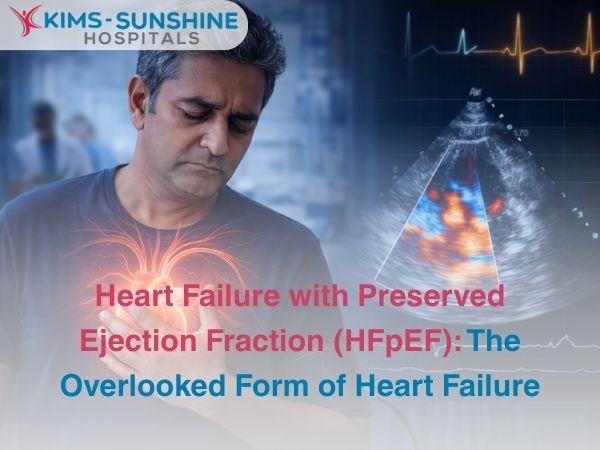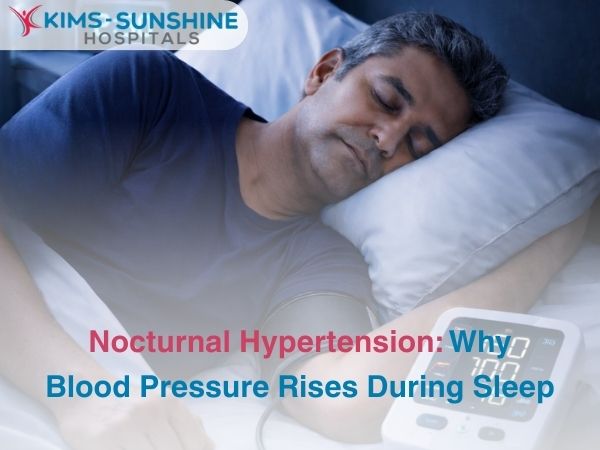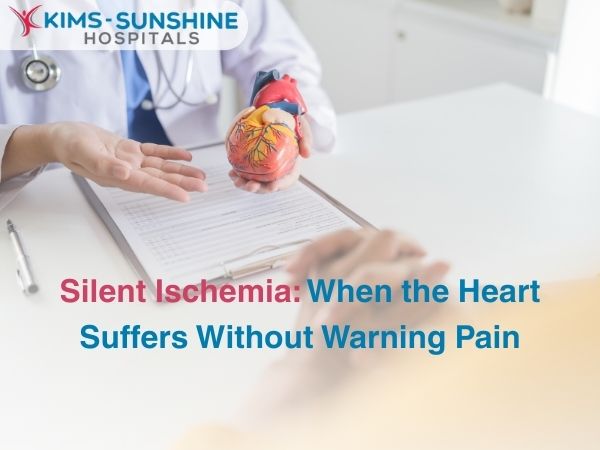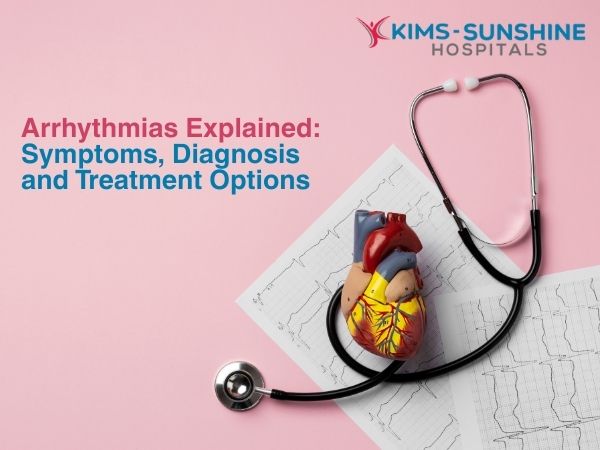
Arrhythmias Explained: Symptoms, Diagnosis and Treatment Options
What Is Arrhythmia? What are Its Symptoms?
The human heart is not a machine. It doesn’t tick. It pulses, listens, stumbles and sometimes even panics. Most of the time, it keeps the beat quietly, like a background rhythm you don’t consciously hear. But when that rhythm slips, something vital feels out of sync.
That’s an arrhythmia – a disruption in the heart’s natural electrical flow. It isn’t just about palpitations or fluttering; it can feel like a hush between beats, a sudden thump in the chest, or a hollow drop in the pit of your stomach.
Is Arrhythmia Dangerous For Heart Health?
When your heart loses its rhythm often or for long stretches, its ability to circulate blood efficiently is compromised. This can lead to fatigue, chest pain, fainting spells, or worse – long-term damage to the heart muscle. Over time, untreated arrhythmias may quietly invite heart failure. There’s also the emotional toll. The not-knowing. Especially in the Indian context, where our culture favours endurance over investigation, many live with symptoms for months before seeking help. The heart may be patient, but it isn’t infinite. It needs us to pay attention.
Heart Arrhythmia And Risk Of Stroke
One of the quietest threats arrhythmias carry is their link to stroke. Imagine the top chambers of the heart – instead of pumping in a smooth rhythm, they begin to quiver like a shaken hand. Blood doesn’t move as it should and when it pools, it clots. Now imagine that clot taking a detour to the brain. This is how strokes can be born. With timely scans, proper blood thinners, or rhythm control, the risk can drop dramatically. But that only happens when we stop treating dizziness as dehydration or heart flutters as just nerves. When we start listening, even to the softest irregularities, we give the body a fighting chance.
Treatment Options For Arrhythmias
- The Lifestyle Compass
Avoiding caffeine binges, reducing alcohol and cutting down stress. These aren’t just lifestyle tips. They are corrections in the background noise that disturb the heart’s frequency. Sleep deprivation, skipped meals and erratic hydration levels, all disturb the internal circuitry. - Medications That Recalibrate
When lifestyle isn’t enough, medications step in to do the heavy lifting. Some drugs slow a racing heart. Others help it beat more regularly. In cases like atrial fibrillation, blood thinners are prescribed to lower stroke risk. - Devices That Watch Over You
Pacemakers act like backstage conductors, sending out electrical signals to keep the beat steady. ICDs (implantable cardioverter defibrillators) are more like watchful guardians. They monitor for dangerous rhythms and deliver a quick jolt if things spiral. - The Art Of Ablation
When medication fails to tame them, doctors use a technique called cardiac ablation. This is where skill meets precision. A thin tube is threaded into your heart and a tiny area causing the misfire is either heated or cooled until it stops sending the wrong signals. The heart, now free of the interference, often resets to its normal beat like a radio finding its frequency again. - When Surgery Is The Last Step
Surgery is rare, but sometimes necessary, especially when arrhythmias are tangled with valve disorders or other structural issues. It’s the final lap, not the starting point. But when done well, it offers a kind of long-term stability that medications may never achieve.


